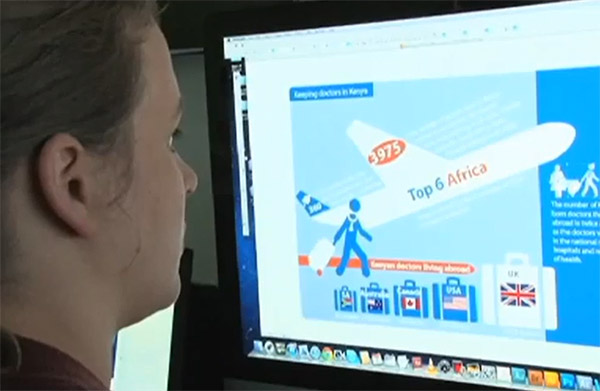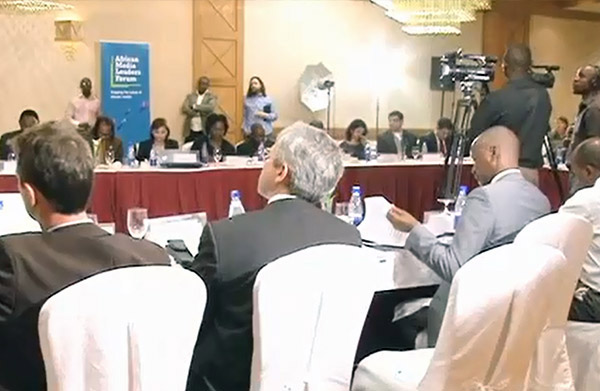What is Data Journalism?
Data journalism finds meaning in sources of data. A data journalist learns to spot patterns, analyze trends and make investigations that result in news stories. The data journalist applies his/her news sense to what is often hidden in mountains of data, uncovering stories important to the community.
Data journalism is a response to two important trends in the media: the decline of the media as a source of breaking news due to the rise of social media and the rise of data as a vital source of information to understand our world.
Successful early data projects have shifted the tone from he-said, she-said sound-bytes to solid data sources that have inspired journalists, civil society organizations and governments to pool their efforts, and their data. This makes it easier for journalists to mine data, identify patterns and investigate the reasons behind these trends to cast a spotlight on development needs.
Why is it important?
Data journalism covers a large variety of topics: why a balanced diet is a bigger contributor to saving the lives of children under five than many disease prevention measures, how external trade policies impact our environment and how the devolution process will impact the resources and influence in the community.
It analyzes the complex dynamics that cause political initiatives to succeed or fail, people to become sick or well and inequality to grow or shrink. The most innovative journalists are quietly transforming journalism by harnessing the power of open data. Working in collaboration with civil society groups and governments, they are applying new digital tools to troves of data that have become increasingly accessible.
Together, they tell stories via investigative reporting and powerful interactive graphics that explain the reasons behind and explore the solutions to some of Kenya's greatest societal, economic and governance challenges.
Why should you become a data journalist?
To put it simply, data journalism is a means of self-preservation in a time when the media industry needs to adjust to the increasing availability of content from "non-journalists". Breaking news is now often the domain of social media, and advertising dollars are divided among the millions of professional and non-professional content providers who want a piece of the pie. But there is growing need and demand for in-depth content and analysis that people can't get anywhere else and are willing to pay for.
Journalists who can capture, analyze, visualize and explain the political, economic and social forces that shape our day-to-day lives are essential to Kenya's growth. This journalistic content exposes propaganda, defeats myths and defends solid facts. Data media skills enable journalists to thrive in the digital age and shape the future of media and society.
How can you get started in data journalism?
Data journalism can do two important things: it can make the work you do faster and more efficient and it can help you tell stories that are more analytical, in-depth. Internews in Kenya can help you get started in both. Whether you have a question that you need data to answer or a dataset that you think holds an interesting story, our team is ready to mentor you to mine, clean, analyze and visualize the data and tell compelling stories.
Our website includes datasets for you to explore, tutorials on data journalism tools, free visualizations for you to investigate and publish at your own outlet and inspiring examples of data journalism from across the world. We also hold workshops, discussions and mentoring for aspiring data journalists. Data journalism is a team endeavor and we welcome your contributions to the growing data journalism movement in Kenya.
Data Dredger Multimedia
Internews data portal among the best in data
Making numbers tell stories in a compelling way - that's the challenge for journalists embracing the next big thing in their field: data journalism. Internews data portal, Data Dredger is just the tool to help overcome this challenge.
Read More













